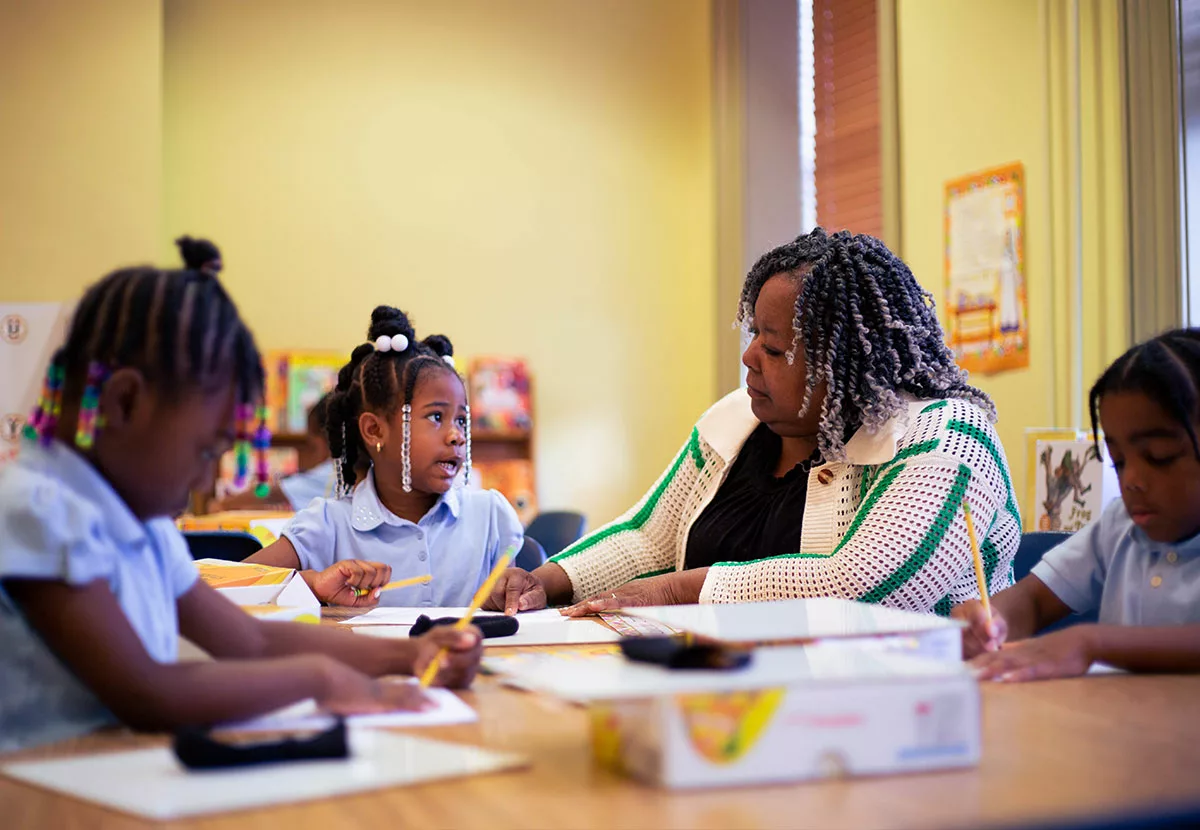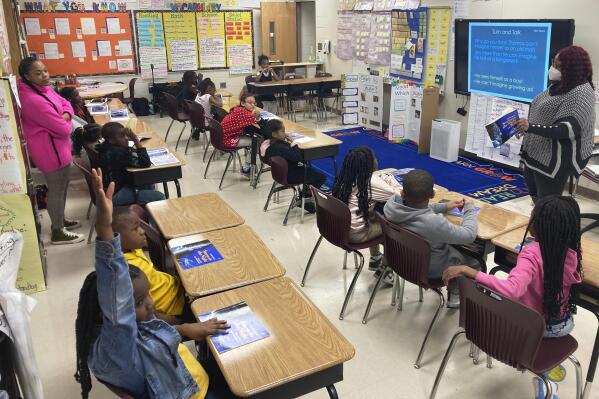The Benefits of Enrolling Early in a Quality Kindergarten Program
Wiki Article
Aspects to Consider in Picking Independent School: Comprehending What Each Institution Needs To Offer for Your Child's Development
Choosing a private school for a youngster includes mindful factor to consider of several elements. Parents have to examine the academic educational program and mentor approaches of numerous organizations. They need to likewise check out extracurricular activities that could improve their child's experience. Furthermore, recognizing the college's society and worths is important for placement with family members ideas. As financial implications play a significant role, it is important to weigh tuition costs versus readily available scholarships. Just how do these aspects form a child's development course?Academic Curriculum and Mentor Philosophy
When picking a private institution, recognizing the academic curriculum and mentor approach is crucial, as these aspects significantly influence a kid's instructional experience. Moms and dads should explore the institution's method to training and the topics offered, as this can differ considerably amongst institutions. Some institutions might embrace a traditional educational program concentrated on core topics, while others could highlight project-based discovering or interdisciplinary research studies.Additionally, the teaching approach can shape classroom dynamics and trainee interaction. Schools that focus on a student-centered method often foster vital thinking and collaboration, while those with a more organized atmosphere may concentrate on self-control and foundational skills.
After-school Activities and Enrichment Programs

Significance of Diverse Activities
While academic excellence is often focused on secretive colleges, the relevance of varied activities, consisting of after-school activities and enrichment programs, can not be overstated. These activities play a vital function in a child's alternative development, offering opportunities for imagination, important thinking, and teamwork. Taking part in different pursuits allows pupils to discover their passions, uncover brand-new passions, and establish crucial life abilities, such as time monitoring and self-discipline. Additionally, varied activities can promote a feeling of belonging and area, enhancing the general college experience. By taking part in clubs, sports, and imaginative ventures, trainees not just enrich their education but also create unforgettable experiences that add to their individual development. Varied activities are indispensable to promoting all-round people.Effect on Social Abilities
Just how do after-school activities and enrichment programs affect a kid's social skills? These programs provide vital opportunities for kids to interact with peers beyond the traditional class setting. Taking part in clubs, sports, or arts promotes team effort, communication, and problem resolution. Children find out to navigate diverse social atmospheres, enhancing their capacity to create friendships and create compassion. In addition, taking part in various activities urges self-confidence, as children handle new difficulties and duties. As they collaborate on projects or contend in groups, they likewise gain valuable experience in leadership and collaboration. Inevitably, an abundant array of extracurricular offerings adds significantly to a kid's social advancement, preparing them for future social communications in both personal and scholastic contexts.School Society and Worths
Recognizing the institution society and worths is vital for parents evaluating personal education choices, as these elements substantially affect a youngster's general experience. Each organization symbolizes one-of-a-kind viewpoints, traditions, and social standards that form pupils' day-to-day lives. A college that stresses inclusivity may foster a helpful setting, motivating kids to develop empathy and respect for varied histories. On the other hand, institutions that prioritize scholastic quality might develop a competitive environment, motivating trainees to go for high accomplishment.The placement of a school's values with a family's ideas can improve a youngster's feeling of belonging, enhancing favorable behaviors and attitudes. Moms and dads need to examine the institution's objective statement, review its corrective plans, and observe pupil interactions to determine the fundamental society. Ultimately, a school's culture and worths significantly affect not just scholastic success but also personal growth, furnishing children with important life abilities for their future.
Class Size and Student-Teacher Proportion
Course size and student-teacher proportion play an essential function in the academic experience supplied by independent schools. Smaller courses often bring about boosted private interest, promoting far better student interaction and understanding. Research suggests that these factors can substantially affect finding out results, making them crucial factors to consider for moms and dads.Advantages of Smaller Sized Courses
Smaller sized class sizes significantly enhance Private School the academic experience by cultivating a lot more personalized focus from instructors. In these environments, educators can customize their instruction to meet individual trainee needs, enabling a deeper understanding of the material. With fewer trainees, teachers can extra easily identify those that may be battling and provide prompt assistance. This close interaction can grow more powerful connections in between instructors and trainees, creating a helpful atmosphere helpful to learning. In addition, smaller sized courses frequently advertise better participation, as trainees may feel much more comfortable articulating their ideas and questions. This vibrant urges joint learning and enhances total class engagement. Inevitably, the benefits of smaller sized classes add incredibly to an all-around instructional experience that focuses on pupil growth and growth.Influence on Discovering Outcomes
The benefits of smaller classes expand beyond tailored interest, significantly affecting discovering outcomes. Research consistently reveals that a reduced student-teacher ratio promotes enhanced interaction, allowing instructors to customize direction to private demands. This atmosphere motivates energetic participation, vital reasoning, and much deeper understanding of the material. In smaller settings, instructors can extra successfully recognize and deal with discovering spaces, leading to boosted academic performance. Grade School. Additionally, trainees often feel a lot more comfortable sharing their ideas and asking inquiries, which can even more enrich the knowing experience. On the other hand, bigger class sizes may limit interaction and responses, potentially impeding pupil development. Therefore, when reviewing personal schools, family members need to think about course size and student-teacher proportions as substantial factors influencing their child's educational successCommunity Involvement and Parental Participation
Just how can area engagement and adult involvement boost the instructional experience secretive institutions? These aspects play a crucial role in enriching the finding out environment. When moms and dads proactively join institution activities, they foster a sense of belonging and assistance among students. This involvement can take different kinds, such as offering for events, going to meetings, or signing up with committees, which not only reinforces the school community yet also improves communication between families and teachers.Community engagement extends this support by connecting the college with regional organizations, organizations, and social institutions (Grade School Peoria). Such collaborations give pupils with distinct understanding opportunities, including teaching fellowships and workshops, which add to their overall growth. Furthermore, schools that focus on these connections commonly develop an even more inclusive atmosphere, permitting varied point of views to be shared. Eventually, community engagement and parental participation serve to develop a collaborative and helpful environment that contributes positively to students' scholastic and social success
Financial Considerations and Scholarships
Navigating the monetary landscape of personal schools can be an intricate procedure for family members. Tuition prices differ significantly, usually affected by variables such as area, centers, and the school's track record. Households must evaluate their financial circumstance, considering not just tuition however also additional expenses like uniforms, fees, and extracurricular tasks.Many personal institutions use scholarship programs focused on bring in varied student populations - Grade School. These scholarships can ease monetary concerns and make high quality education available to families with differing income levels. It is necessary for parents to make inquiries regarding the schedule of merit-based and need-based scholarships and comprehend the application procedures included
In addition, some colleges provide versatile repayment plans that can relieve prompt financial stress. By evaluating all monetary elements and exploring scholarship chances, households can make enlightened decisions that line up with their educational goals and monetary constraints.
Often Asked Concerns
How Do Schools Support Students With Understanding Disabilities?
Schools support trainees with learning impairments via personalized education and learning plans, specialized mentor approaches, and additional sources. They typically offer tailored interventions, accessibility to sustain staff, and comprehensive environments to cultivate psychological and academic development.What Is the College's Approach to Discipline and Actions Management?
The college's strategy to technique and habits administration emphasizes favorable reinforcement, clear assumptions, and restorative techniques. Team proactively involve students in conversations concerning actions, cultivating a supportive setting that motivates personal responsibility and accountability.Exactly How Do Colleges Manage Student Shifts, Such as Transferring To Greater Qualities?
Colleges generally offer structured support throughout trainee modifications, including positioning programs, mentorship chances, and tailored academic preparation. These procedures intend to ease stress and anxiety, promote adjustment, and warranty pupils are prepared for the obstacles of greater qualities.What Are the School's Plans on Technology Use in the Classroom?

How Do Schools Assess Student Progression and Offer Comments to Parents?
Schools evaluate pupil development via normal evaluations, including examinations, projects, and class involvement. Responses is provided to parents through transcript, parent-teacher meetings, and on the internet sites, making sure continuous interaction regarding each child's scholastic development.
Report this wiki page